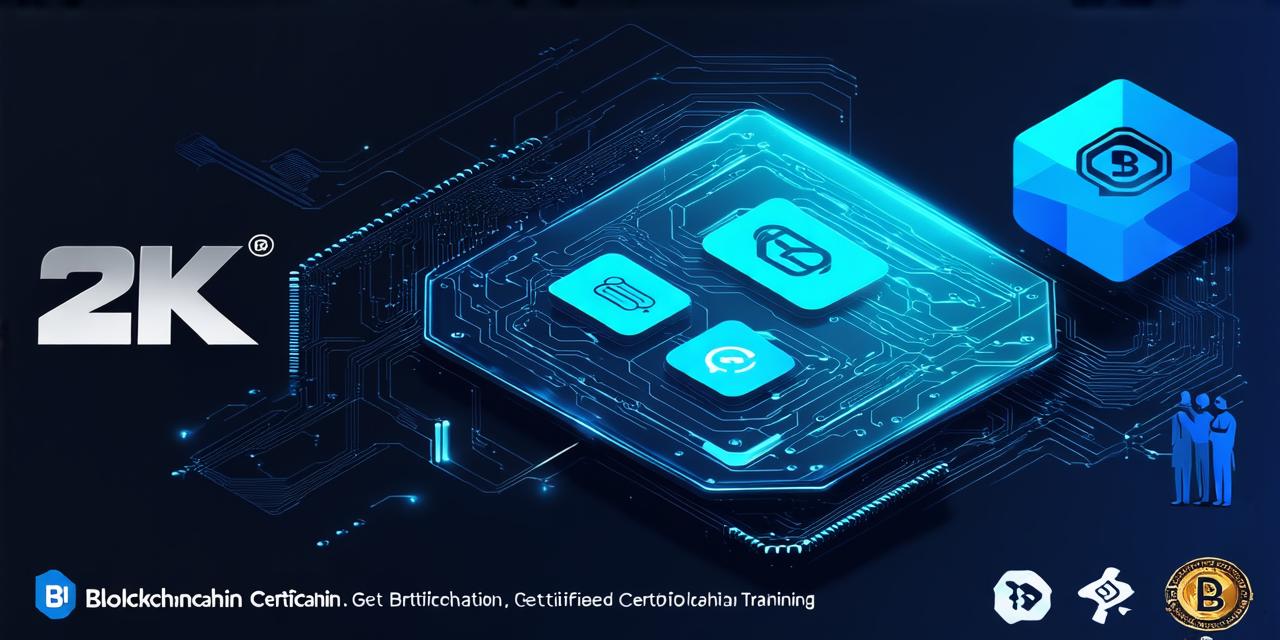
Blockchain technology is becoming increasingly popular in various industries, including finance, healthcare, and supply chain management. As the demand for blockchain experts continues to grow, it’s essential to obtain a certification that validates your skills and knowledge of this emerging field. In this article, we will explore the different options available for getting blockchain certified and provide guidance on how to choose the right one for you.
What is Blockchain Certification?
A blockchain certificate is a credential that verifies an individual’s knowledge and skills in blockchain technology. It serves as proof of proficiency in various areas, such as blockchain architecture, programming, security, and governance. Obtaining a blockchain certification can help you stand out from other candidates when applying for job opportunities or bidding on projects related to blockchain development.
The Importance of Blockchain Certification
Blockchain technology is still in its early stages, and the industry is rapidly evolving. As more companies adopt this technology, there will be a growing need for skilled professionals who can design, implement, and maintain blockchain-based solutions. A blockchain certification can help you demonstrate your expertise in this field and increase your chances of landing high-paying jobs or consulting gigs.
Choosing the Right Blockchain Certification
There are several options available for getting blockchain certified, each with its strengths and weaknesses. Here are some factors to consider when choosing a certification:
- Reputation and Credibility: Look for certifications that are recognized by industry experts and reputable organizations, such as the Certified Blockchain Professional (CBP) or Certified Ethereum Developer (CED). These certifications are issued by well-established companies and have a proven track record of being valuable to employers.
- Relevance to Your Career Goals: Consider the specific skills and knowledge that you want to develop in blockchain technology. Some certifications, such as the Certified Blockchain Developer (CBDev), focus on programming and development skills, while others, like the Certified Blockchain Governance Professional (CBGov), emphasize governance and compliance issues.
- Cost and Time Commitment: Certification programs can vary in terms of cost and time commitment. Some require a one-time exam fee and a few days of study, while others may involve multiple courses or workshops spread over several months. Consider your budget and availability before committing to a certification program.
- Exam Format and Content: Make sure to review the exam format and content to ensure that it aligns with your learning goals and skill level.
Popular Blockchain Certification Programs
Here are some of the most popular blockchain certification programs available:
- Certified Blockchain Professional (CBP): Issued by the International Association of Blockchain Professionals (IABP), the CBP is a comprehensive certification that covers various aspects of blockchain technology, including architecture, programming, security, and governance. The certification requires passing a multiple-choice exam and completing a series of workshops or courses.
- Certified Ethereum Developer (CED): The CED is issued by the Ethereum Foundation and focuses specifically on Ethereum development skills. To become certified, candidates must pass an exam that covers topics such as smart contract programming, gas optimization, and security best practices.
- Certified Blockchain Developer (CBDev): The CBDev is issued by the Blockchain Academy and is designed for developers with experience in blockchain technology. The certification program involves a series of online courses and exams that cover topics such as blockchain architecture, programming, and security.
- Certified Blockchain Governance Professional (CBGov): The CBGov is issued by the Blockchain Research Institute and focuses on governance and compliance issues related to blockchain technology. The certification program involves a series of workshops and courses that cover topics such as regulatory frameworks, privacy concerns, and risk management.
Real-Life Examples of Blockchain Certification
Here are some real-life examples of how blockchain certifications can benefit individuals and organizations:
- John is a software developer with experience in blockchain technology.



